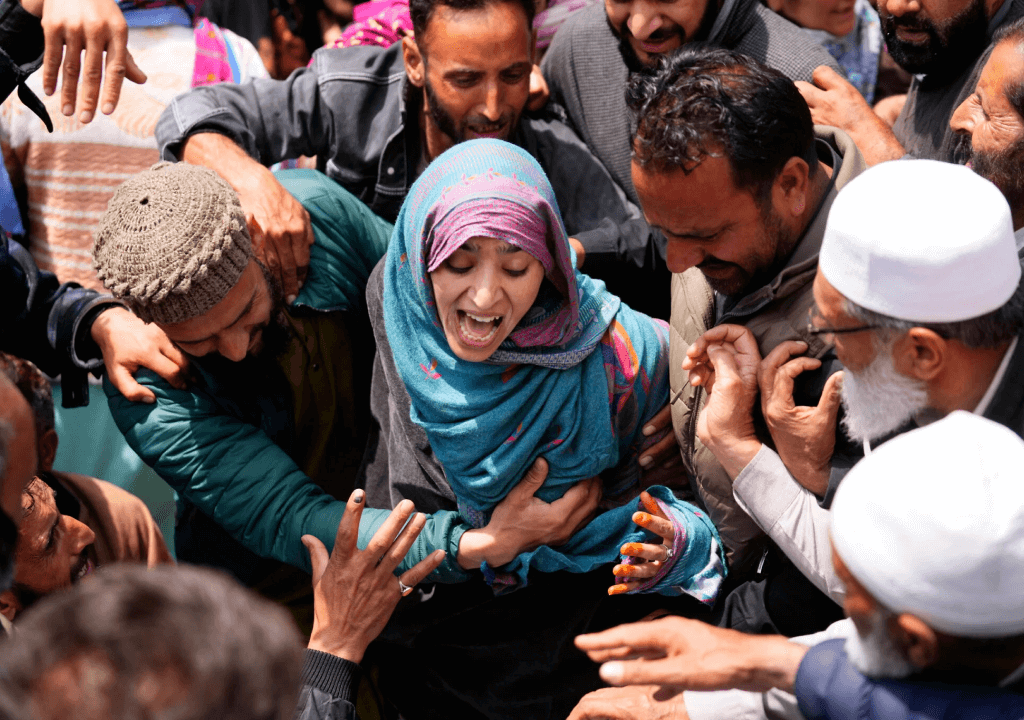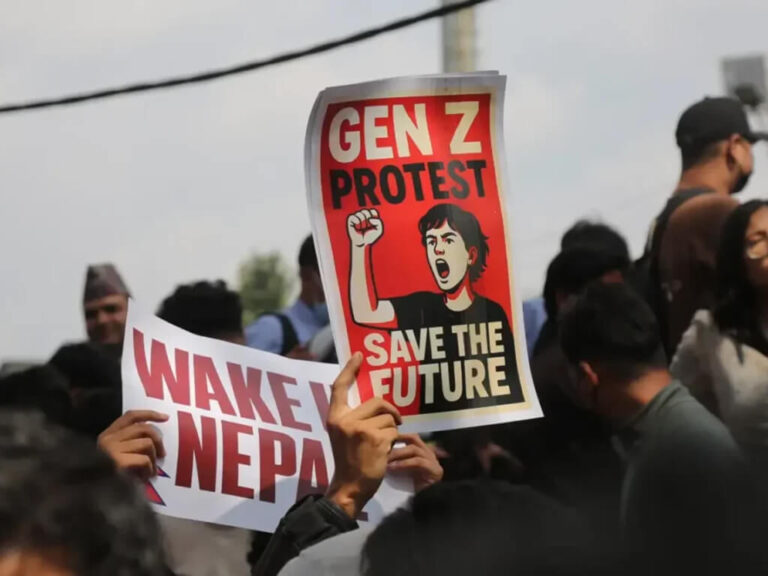Two of Asia’s most powerful and contentious neighbors—nuclear-armed and densely populated—are once again on the brink of confrontation following a terrorist attack in Indian-administered Kashmir. The assault, reportedly carried out by Islamist extremists, targeted Hindu civilians, sparking widespread outrage across India.
The targeted killings of Hindu civilians have placed immense pressure on Prime Minister Narendra Modi’s Hindu nationalist government to respond forcefully. Public sentiment, especially on social media, is overwhelmingly in favor of military retaliation. Pakistan, frequently accused by New Delhi of harboring or supporting cross-border terrorist groups, has come under renewed scrutiny and is reportedly preparing for a potential escalation.
As tensions rise rapidly on both sides, fears are growing of yet another dangerous standoff between these long-standing adversaries—one that could lead to a catastrophic human toll.
What happened in Kashmir?
The brutal terrorist attack that claimed 26 lives in one of Kashmir’s most scenic regions shattered a period of relative calm, transforming a popular tourist destination into a scene of horror. It’s reported that some gunmen emerged from dense pine forests, asked tourists about their religion, and selectively killed Hindu men. A little-known group, calling itself the Resistance Front, claimed responsibility, but Indian authorities suspect it is a proxy for Lashkar-e-Taiba or another Pakistan-based faction. While Pakistan denies supporting terrorists, clear signs emerged in recent weeks that Islamabad had been preparing for a possible Indian response.
India and Pakistan, having fought three wars over the disputed territory, remain deeply divided. The integration of Kashmir into India has been a core objective for Narendra Modi’s government, which revoked the region’s special status five years ago. This move brought Kashmir in line with other Indian territories, granting New Delhi direct control and ushering in a period of relative calm.
At the same time, Kashmir remains a crucial unifying issue for Pakistan, which often uses the dispute to rally domestic support, particularly when the government faces internal challenges. This latest terrorist attack occurred just a week after Pakistan’s army chief, General Asim Munir, referred to Kashmir as Pakistan’s “jugular” and vowed not to “abandon our Kashmiri brothers in their heroic struggle.
Escalating tit-for-tat moves
After canceling his visit to Saudi Arabia and returning to New Delhi, the Indian Prime Minister convened high-level meetings to formulate a response to the attack, with Pakistan as the primary focus. The initial steps were diplomatic: India canceled visas, shut down diplomatic channels, downgraded bilateral relations, and suspended the Indus Waters Treaty—a crucial water-sharing agreement on which Pakistan heavily depends. The Prime Minister has since vowed that retaliation will follow in a form that delivers lasting consequences for Pakistan.
In response, Pakistan has begun implementing countermeasures. Islamabad has closed its airspace to Indian aircraft, canceled diplomatic engagements, suspended visa issuance, and halted trade with India. Its strongest reaction has come against the suspension of the Indus Waters Treaty—one of the world’s most enduring and vital water-sharing agreements, essential to Pakistan’s agricultural sector. Pakistani officials warn that this move could prove more damaging than a military strike, as agriculture remains a cornerstone of an economy already strained by poverty, inflation, and domestic terrorism. Any disruption to water supplies could plunge the country into deeper instability.
As part of its retaliation, Pakistan has also suspended the Shimla Accord—the 1972 treaty that served as the bedrock of diplomatic engagement between the two nations.
Did terrorists succeed in reigniting Kashmir?
Pakistan and allied Islamist groups have long sought to bring Kashmir back into the international spotlight—and the recent attack appears to have achieved just that. It was timed during U.S. Vice President JD Vance’s visit to India, where he emphasized deepening defense ties and praised New Delhi as a key strategic partner. The attack gained significant global media attention as a result. Simultaneously, Prime Minister Narendra Modi was on a widely covered visit to Saudi Arabia—an Islamic nation traditionally close to Pakistan but now warming to India. In that sense, Pakistan also succeeded in reminding the Islamic world of Kashmir.
Domestically, it’s also a short-term win for Pakistan. Confronted with deep political divisions and growing separatist unrest in Balochistan, Islamabad seized the moment to rally unity by inflaming anti-India sentiment. Yet whether this renewed spotlight on Kashmir will actually find support among Kashmiris remains highly uncertain.
Since Modi’s government revoked Jammu and Kashmir’s special status in 2019, the region has experienced relative calm. Terrorist incidents declined, and tourism soared—reaching 3.5 million visitors in 2024. Modi has used this to present Kashmir’s “normalization” as a political and economic success, despite lingering resentment over the region’s heavy militarization.
The latest attack has disrupted this fragile peace and placed local livelihoods at risk. In protest, more than a dozen Kashmiri organizations closed businesses and held marches, with demonstrators chanting, “Tourists are our lifeline.”
While Pakistan may have succeeded in turning the world’s gaze back to Kashmir, the response from within the valley suggests the move may backfire.
What happens next?
Modi’s swift return from an official visit to Saudi Arabia highlights the government’s determination to respond decisively. The pressure is mounting for a strong retaliation following the brazen attack in one of the world’s most militarized zones. Analysts speculate that India may consider cross-border strikes, similar to those launched after the 2019 Pulwama suicide bombing, which killed 40 Indian paramilitary personnel. However, unlike Pulwama, the recent victims were civilians, raising the political stakes even higher.
Modi, a Hindu nationalist leader, is expected to seek revenge, though predicting his next move is challenging. While open war seems unlikely—given that India has much more to lose, and the economy remains a primary concern—Modi’s political agenda may not allow him to back down without some form of retaliation. Pakistan may have succeeded in bringing Kashmir back into the global spotlight, but India’s suspension of the Indus Waters Treaty has introduced an unexpected consequence. While this move is a blow to Pakistan, it allows the government to rally domestic support by blaming India for its mounting problems and fueling anti-India rhetoric.








